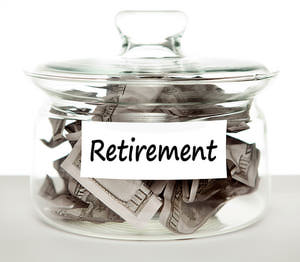10 Tips for More Successful Retirement Planning
 Planning a retirement lifestyle is one of the single-most rewarding aspects of working hard all your life. However, this planning is oftentimes wrought with worry, because many people do not understand how to do this successfully so they can live out the best years of their lives in comfort.
Planning a retirement lifestyle is one of the single-most rewarding aspects of working hard all your life. However, this planning is oftentimes wrought with worry, because many people do not understand how to do this successfully so they can live out the best years of their lives in comfort.
From how and where you will reside to how you will care for personal health and end of life decisions, the decisions you make now are critical to successful retirement planning. Here are some helpful tips to help guide you on this journey.
1. Start a retirement fund now. You may have a few years until retirement age, or you may just be starting to think about a retirement plan. Whatever the case may be for you, experts advise planning your retirement with an investment strategy as soon as you can. The sooner you can start to put away money, the more you will have accrued in savings and interest by the time you are ready to retire.
2. Focus on living frugally. The trouble with retirement planning is that some people fall into the trap of trying to get too much stuff early life, which only leads to long term debt. Spending your life paying off debt interest takes away from your ability to dream about the future. Living frugally now pays off later on.
3. Make your “bucket list”. It’s time to start thinking about all the things you’ve always wanted to experience in life. If you’ve put off traveling or taking up a hobby of some sort, now is the time to include this into your retirement planning. This gives you a measurable goal that will keep you on track.
4. Choose affordable living arrangements. Whether you plan to own your home in a few short years, or you want to move in with family; the decisions you make now should include your life needs as a retiree. You may realize that a large house will be too much to manage in your older years, or you may want to have a community of others in your age group as you advance in life.
5. Research services and support for retired people. A portion of your retirement fund will be spent on your personal care and health concerns as an older person. Be sure to plan for these aspects as you put your retirement plan together, considering the advantages of long term care insurance and retirement assisted living communities.
6. Get your will and legal affairs in order. As soon as you are able to, have a personal will drawn up and kept with your lawyer’s office. Let your children or siblings know where to find this information, and assign a power of attorney who can handle things for you if you become ill or incapacitated at any time.
7. Set aside tax free dollars. Being smart with your retirement savings also means investing in the next generation, while enjoying a nice tax shelter. While you can only put a certain amount into your 401k and IRAs each year, you can also put tax free money into 529 plans for your nieces, nephews and grandkids who plan to go to college.
8. Start a second-life career. Most people who retire often want to remain active in other things than leisure living. Consider your talents and experience, and develop a flexible and enjoyable second career path. Perhaps going back to finish your college degree, or starting a home-based business is in order.
9. Work with a retirement investment planner. Getting the most from your retirement often requires the support and guidance of an expert. Periodically review your investment portfolio with a trusted and qualified retirement professional.
10. Pay down debts and reduce overhead. Once you near retirement, consider that you will soon be living on a limited income. Therefore, you want to get your debts paid down as much as possible. Eliminate the burdens of too much property by selling now.
Retirement is a time to celebrate. You can be better prepared and enter this exciting time of your life by planning ahead and reaching your retirement goals in style.
Julia Dennis writes about Eco Friendly Senior living facilities and other assisted living topics for Friendship Village. When she’s not writing she enjoys running and spending time with her children.















